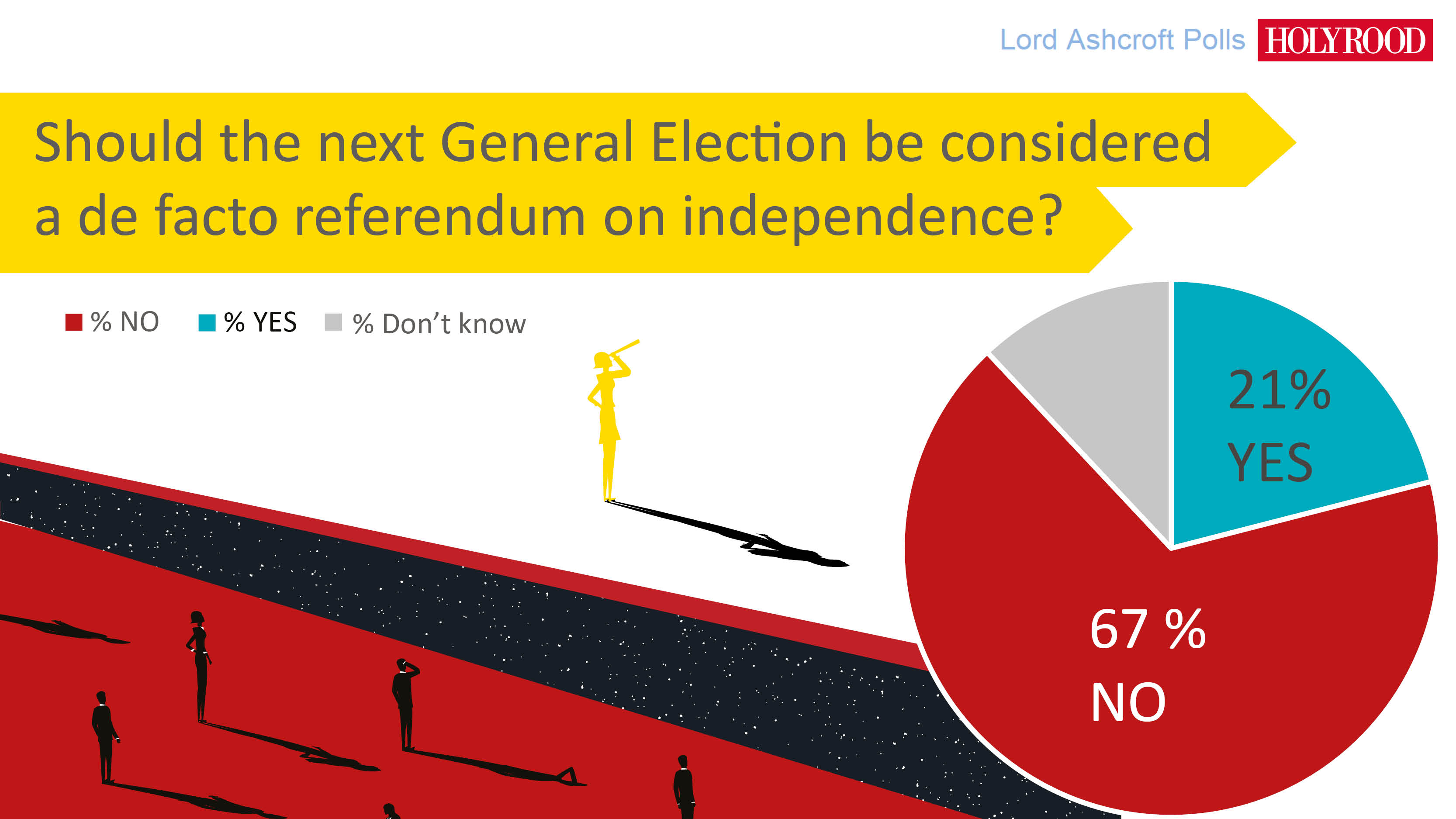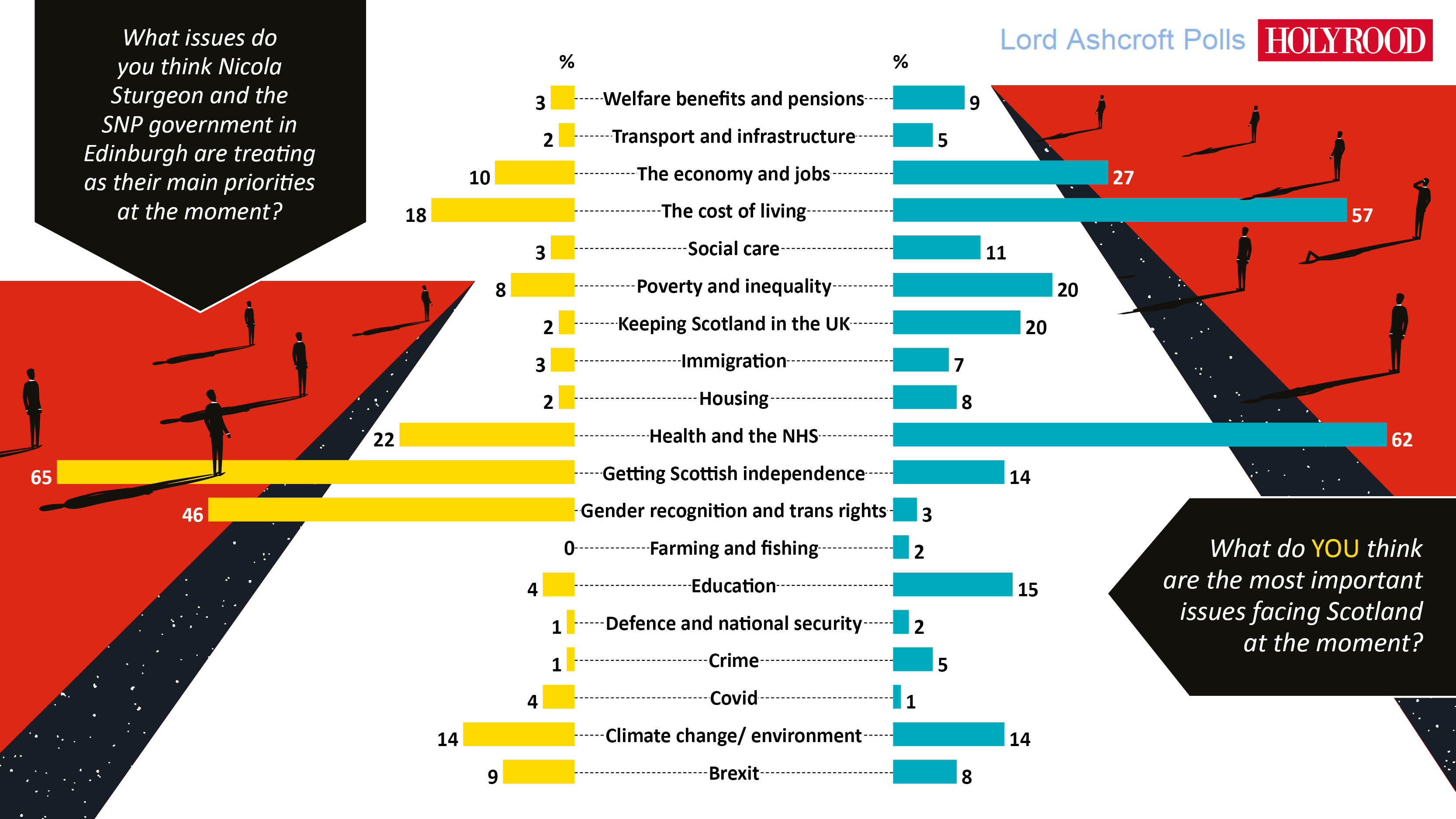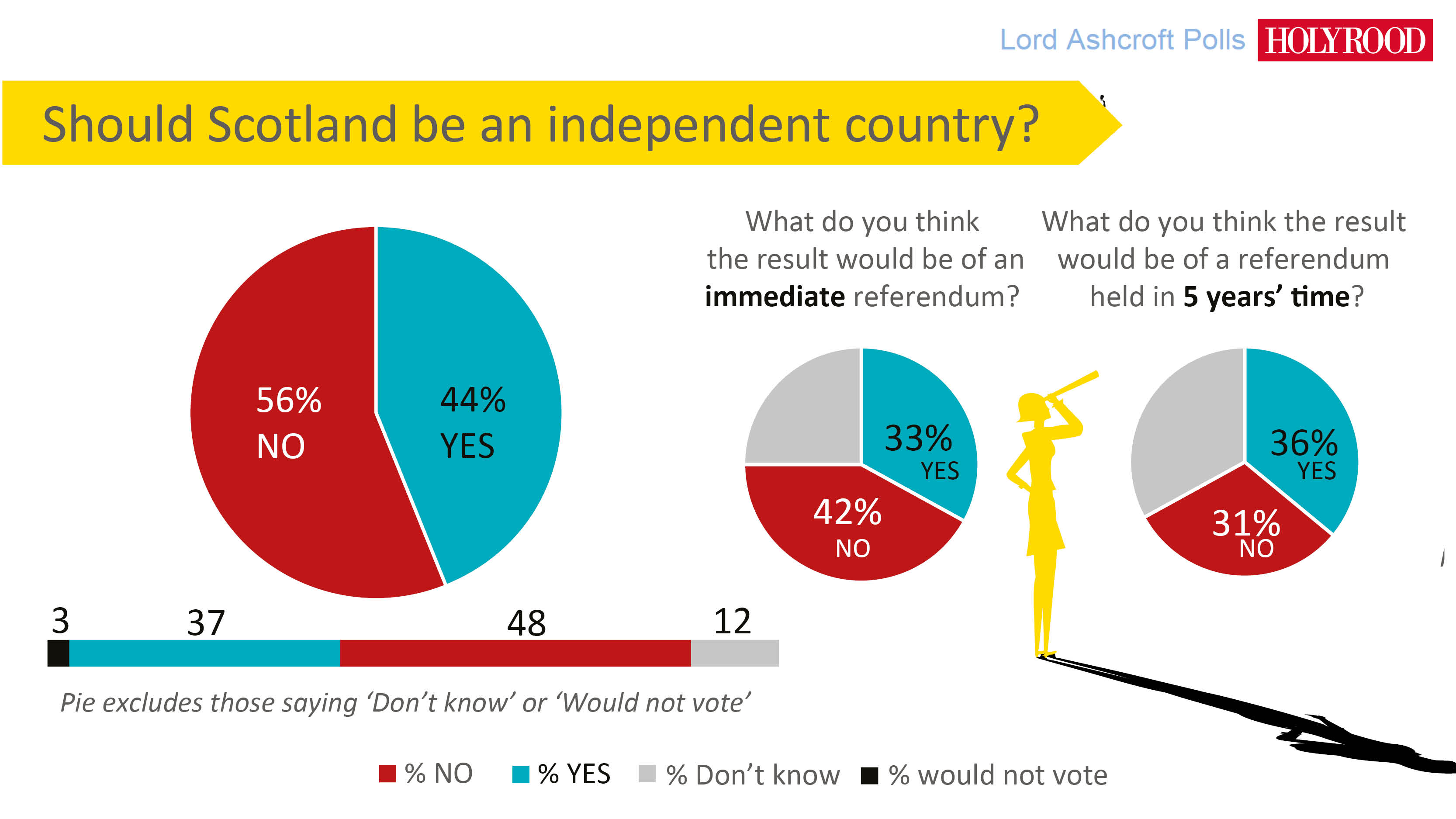Exclusive poll: SNP supporters split on "de facto" Scottish independence referendum
SNP supporters are split on Nicola Sturgeon's plan to use the next general election as a "de facto" independence referendum, according to exclusive polling shared with Holyrood magazine.
Published today, the research by Lord Ashcroft shows less than half of those who voted SNP in the 2019 general election are in favour of using the next one as a means to determine the public's will on independence.
In a representative sample of 2,105 Scots aged 16 and over, only 44 per cent of people who voted for Sturgeon's party in 2019 said "the next general election should be taken as a de facto independence referendum", with every vote cast for a pro-independence party taken as one for ending the Union.
In contrast, 48 per cent agreed that "people vote at elections for lots of different reasons – we cannot assume that every vote for the SNP or the Greens is a vote for Scottish independence".
For the public in general only one in five (21 per cent) were in favour of a de facto indyref, while two in three (67 per cent) were sceptical.
Fewer than half of people declared support for independence, with 44 per cent saying they'd vote Yes if a referendum was held tomorrow, and 56 per cent indicating they would vote No, excluding those who don't know or would not vote.

The results are the latest in a line which show a reduction in support for constitutional change, despite six consecutive polls late last year which put Yes in front. Those were undertaken in the wake of the Supreme Court ruling that the Scottish Parliament does not have the power to legislate for the advisory referendum Sturgeon hoped to hold in October this year.
Lord Ashcroft’s poll shows only 33 per cent believe Yes would win an immediate referendum, with 25 per cent unsure, and just 36 per cent predict a Yes victory in such a ballot held within five years.
At 52 per cent, more younger people aged 16-24 said they would vote for independence than any other age group. Meanwhile, the 25-39 category had the largest percentage of those who did not know how they would vote (17 per cent) and support for No was strongest amongst over-65s (69 per cent).
When asked about their current three top priorities for Scotland, the public named health and the NHS (62 per cent), the cost of living (57 per cent) and the economy and jobs (27 per cent).
However, they regard the Scottish Government's three top priorities as getting Scottish independence (65 per cent), gender recognition and trans rights (46 per cent) and health and the NHS (22 per cent).
Only 14 per cent of those polled said getting Scottish independence is one of their immediate priorities – lower than the figure for “keeping Scotland in the UK” (16 per cent) – and three per cent chose gender recognition and trans rights.

Recent research by YouGov found backing for a referendum this year amongst people who voted Yes in 2014 has dropped by 13 points since December to 52 per cent, while further polling by JL Partners put support for a referendum in the next year at 26 per cent.
Carried out between 26 January and 3 February, the Ashcroft polling is published after the SNP’s Stewart McDonald MP and ex-cabinet secretary Alex Neil issued calls to abandon the de facto referendum strategy – calls that met with opposition from figures including Pete Wishart MP, as former First Minister Alex Salmond accused the SNP of having squandered political capital and failing to advance the independence cause.
It also follows the UK Government's intervention to block the Gender Recognition Reform (GRR) Bill, a move described by the SNP as an attack on Scottish democracy.
Commenting on the results, political scientist Professor John Curtice said the SNP is "divided" on independence strategy and there were signs that support for leaving the Union was "weakening".
He said: "The Supreme Court judgement of November pushed the numbers up and there was always good reason to believe that would come down after what was probably a temporary rise.

"It’s certainly not good news for the independence side but I think we should be aware that probably it was going to deflate anyway.
"The UK veto on the GRR bill at this point in time has not done anything for the pro-independence case. It’s not the ground on which to fight, that much is clear."
Holyrood Newsletters
Holyrood provides comprehensive coverage of Scottish politics, offering award-winning reporting and analysis: Subscribe